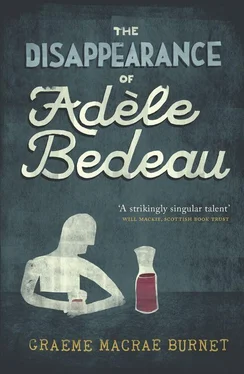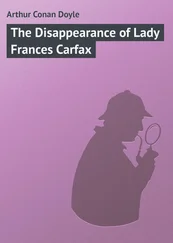‘Are you looking for your blouse?’ Manfred asked.
‘My blouse, yes,’ she said.
‘I’ve got it,’ said Manfred. ‘I found it in the dryer.’ He handed her the note as if to corroborate his story. ‘I didn’t want to leave it down here, in case someone went off with it. It looked expensive.’
The woman looked at him suspiciously and then read the note.
‘Thanks,’ she said in a tone wholly lacking in gratitude.
Manfred stood for a moment, not sure what to say.
‘Shall I fetch it for you?’
He wanted the woman to say that she would accompany him. There was something attractive about her.
‘That would be good,’ said the woman, ‘thank you.’ She smiled. ‘Sorry, it was nice of you to…’ She glanced at the note, before adding, ‘Manfred.’
Manfred’s heart was pounding in his chest. ‘Or you could come with me?’ He jabbed his thumb towards the stairwell.
The woman shrugged and followed him. Manfred told himself to say something, no matter how banal. If he didn’t say something quickly, the entire journey to his apartment would be passed in painful silence.
‘Have you lived here long?’ he said.
‘Sorry?’ said the woman. She was a few steps behind him and the stairwell echoed with their footsteps.
‘Have you been in the building long?’ Manfred repeated. ‘I haven’t seen you before.’
They reached the metal door at the top of the basement stairs. Manfred held it open and the woman went through. She pressed the button for the lift and the door opened immediately. They got in and Manfred pressed the button for the fourth floor. The lift was small and the woman stood at Manfred’s shoulder. They were almost touching. The lift clattered into action. The woman smelt of the same scent that he had detected on the blouse. It wasn’t lavender, it was something less floral, more earthy.
‘I was saying I haven’t seen you before,’ Manfred said. He kept his eyes on the numbers above the door.
‘I’ve been here a few months,’ said the woman. ‘Since February.’
‘I see,’ said Manfred. It was a stupid thing to say. I see . What was that supposed to mean? It sounded like he was interrogating her, as if he intended to use this piece of information to contradict her at a later date. When the lift reached the fourth floor, Manfred got out first so that the woman would not have to squeeze past him. They walked along the corridor in silence.
‘Here we are,’ he said, when they reached the door.
‘4F,’ said the woman, proffering the note she was still holding.
‘Would you like to come inside?’
The woman stepped into the passage and waited as Manfred went into the kitchen to fetch the blouse. He returned and handed it to her.
‘You folded it. Thank you,’ said the woman. She seemed surprised and not displeased.
‘I would have ironed it if I’d had time,’ said Manfred.
The woman smiled kindly as she might to a child who had done well. She was quite beautiful.
‘Thanks again,’ she said and turned to go.
Manfred audibly drew breath. ‘Can I offer you a coffee?’ he said. ‘Or a cup of tea?’ He did not know why he had added the offer of tea. Manfred did not drink tea and did not keep any in the house. The woman pursed her lips and looked at him for a moment, as if she was evaluating him.
‘I’d better not,’ she said. ‘Another time perhaps.’
‘Of course,’ said Manfred. The woman stepped into the corridor.
Manfred closed the door gently behind her and exhaled slowly. He felt he had acquitted himself well. He went into the kitchen and started sorting through his laundry. The woman had appeared to actually consider accepting his invitation. I’d better not . The phrase suggested that she would have liked to accept, but she was unable to. Perhaps she was married and thought it would be improper to accept his invitation, that they would be engaging in something illicit. Or perhaps she had merely meant that she did not have time. In any case, she had not flatly refused. She had implied, clearly implied, that it was beyond her control and given a different set of circumstances, she would have accepted. And then, as if things were not already clear enough, she had added, Another time perhaps. Manfred had not detected any note of sarcasm in her voice. Of course it was difficult to imagine how ‘another time’ might come about, but even so he felt quite elated by the exchange. He should have asked her name. And he should buy some tea.
Manfred fetched the ironing board from the kitchen cupboard, plugged in the iron and sat down at the table, waiting for it to warm.
WHEN MANFRED ARRIVED AT the bank on Monday morning, the staff were talking animatedly about the disappearance of Adèle Bedeau. Mlle Givskov, the senior teller, was voicing the opinion that girls these days were asking for trouble the way they ran around. If this girl had got herself into trouble, she probably only had herself to blame. Mlle Givskov had been taken on by M. Jeantet a year or so after Manfred joined the branch. Her presence made Manfred uneasy and he kept his distance from her. Manfred bid the staff good morning and hurried past into his office. A few minutes later Carolyn brought in his coffee. She was a nice girl, nineteen years old, rather plain and slow, but with a cheerful disposition. Manfred liked her. She never seemed to be trying to impress him as some other new members of staff did.
‘Terrible, isn’t it,’ she said, ‘this business with the girl.’
‘I’m sure it’ll turn out to be nothing,’ said Manfred, a little brusquely. He had no wish to be drawn into a discussion of the matter.
Carolyn placed his coffee on the desk. Manfred looked up from the papers he had been studying. She looked a little crestfallen. He had no wish to snub her. She was sensitive to such things. Once, she had burst into tears when Manfred had pointed out a minor error in a transaction.
‘She’s only been gone a couple of days,’ he said. ‘She’s probably just gone off with some boy.’
Carolyn appeared to take Manfred’s theory very seriously. ‘There was no mention of any boyfriend in the paper,’ she said.
‘People don’t always advertise such things.’ He immediately regretted the remark. It made him sound like someone who routinely engaged in deception or at least expected others to do so. Because Manfred did not socialise with his staff or talk about himself, he was aware that his personal life was the subject of conjecture. He had overheard some of the girls speculate that he was homosexual. Sometimes when he came out of his office, the room fell silent. At the annual Christmas lunch, people jockeyed to avoid sitting next to him. It was the same at the biannual gatherings of local branch managers. When the time came to mingle informally, Manfred found himself on the margins, unable to break into any of the groups that congregated around the room.
‘Did you know her?’ Carolyn asked.
‘By sight,’ said Manfred. ‘I have lunch in the restaurant where she worked.’ It was about as revealing a statement as he had ever made to her. He realised he should not have used the past tense. It implied he had some knowledge that she would not be returning to work.
‘What is she like?’ asked Carolyn, anxious to have some inside information to share with her workmates. ‘She looks very pretty in the picture in the paper.’
‘Are we going to be doing any work today or are the wheels of the banking industry going to grind to a halt because some girl has disappeared for five minutes.’
Carolyn looked hurt. ‘Sorry, Monsieur Baumann,’ she said and left the room. Manfred had told her that she could call him by his first name when they were alone in his office, but she never did.
Читать дальше












